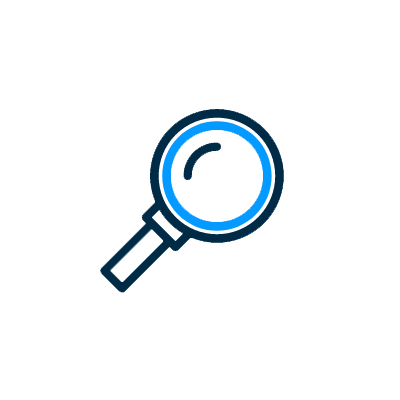
Questions and Answers
When is GST charged on food?
Whether or not you charge GST will have a big impact on your pricing and budgeting so it’s important to know your facts.
3 min read
What is GST?
The goods and services tax (GST) is a tax of 10% on most goods and services sold or consumed in Australia.
Once you are registered for GST you need to include GST in the price of sales to customers and claim credits for the GST included in the price of purchases for your business.
When do I have to register for GST?
You must register for GST when your business or enterprise has a GSPT turnover (gross income from all businesses minus GST) of $75,000 or more, which is the GST threshold.
GST and food
There are some goods and services which are ‘GST-free’ meaning you don’t have to charge your customers GST and you don’t have to pay this GST to the ATO.
Most ‘basic’ food is GST-free.
Examples of GST-free food items are:
- Bread and bread rolls without icing or filling (with the intent that they will not be eaten on the premises)
- Cooking ingredients such as flour, sugar and cake mixes
- Fats and oils for cooking
- Milk, cream, cheese and eggs
- Spices and sauces
- Fruit juice containing at least 90% by volume of juice (unless it is to be consumed at an event, or on the premises)
- Bottled drinking water (unless it is to be consumed at an event, or on the premises)
- Tea and coffee (unless it’s ready to drink)
- Baby food and infant formula
- Meats for people to eat (except prepared meals or snacks)
- Fruit, vegetables, fish and soup
- Spreads, such as honey, jam and peanut butter
- Breakfast cereals
- Rice, cooked or uncooked (but not hot).
Examples of ‘taxable foods’
- Bakery products such as cakes, pastries and pies
- Biscuits, cones and wafers
- Savoury snacks such as potato chips
- Chocolates and lollies
- Ice cream
- Soft drinks and flavoured mils such as strawberry milk
- Food platters
- Food marketed as prepared meals such as sushi, curry and rice dishes
- Any food not for people to eat, such as pet food
- All food and drinks sold in restaurants or for consumption on the premises
GST and the food chain
GST is applied at certain stages in the food supply chain. So if you are a GST-registered business, you can claim ‘GST credits’ for any GST you pay in the price of food items you purchase for your business.
So if, for example, a farmer purchases seeds from a nursery, these are taxable and the nursery charges GST to the farmer who then pays this to the ATO. The farmer can then claim a GST credit for the GST that they paid for the seeds. When the farmer sells the lettuce, which is now fit for human consumption, there is no chargeable GST.
Where food is sold and consumed affects GST
Even though an item may be in the GST-free food list, it may still be taxable under some circumstances.
All food and drinks sold in a café/restaurant or to be eaten or drunk at the place they are sold are taxable even if they are a GST‑free item.
This means, you must charge your customers GST and pay that GST to the ATO if food and drinks are sold at:
- a restaurant or cafe
- a snack bar or stand
- any venue associated with leisure, sport or entertainment such as – a sports ground – a golf course – a gym – a racecourse – a theatre – a museum – a gallery – a cinema – an amusement park.
Worth noting
You cannot claim GST credits for food supplied as an ‘entertainment expense’ if you cannot claim an income tax deduction for it.
History of GST and food
When GST was introduced in 2000, basic food items were excluded to make the tax more palatable. However, over the years, this created a blurred line between what’s GST-free and what’s not.
If for example, you have a yoghurt with cookie pieces in a separate tub you are mixing a GST free product with a taxable product. In 2021 the ATO decided that if a food product combines taxable and non-taxable items intended to be eaten together, they should be considered ‘combination foods’ and therefore taxable.
Conversely, ‘mixed supplies’ (like a hamper with individual items) are treated differently, with GST applying to each item individually.
Staying up to date
Food manufacturers, importers, and distributors need to ensure they stay up to date with these classifications. Even products previously considered mixed supplies might now be seen as combination foods.
How we can help
Understanding the evolving picture of GST on food products is crucial for café/restaurant owners, grocery retailers and food manufacturers.
The way you classify your products for GST can have significant implications. Ensure you regularly review product lines and speak to your local TaxAssist Accountant if you’re unsure in any way about the GST status of your products.
First published 17 Feb 2024 | Last updated 17 Feb 2024
This article is intended to inform rather than advise and is based on legislation and practice at the time. Taxpayer’s circumstances do vary and if you feel that the information provided is beneficial it is important that you contact us before implementation. If you take, or do not take action as a result of reading this article, before receiving our written endorsement, we will accept no responsibility for any financial loss incurred.
Choose the right accounting firm for you
Running your own business can be challenging so why not let TaxAssist Accountants manage your tax, accounting, bookkeeping and payroll needs? If you are not receiving the service you deserve from your accountant, then perhaps it’s time to make the switch?

Local business focus
We specialise in supporting independent businesses. Each TaxAssist Accountant runs their own business, and are passionate about supporting you.

Come and meet us
We enjoy talking to business owners and self-employed professionals who are looking to get the most out of their accountant. You can visit us at any of our multiple locations, meet with us online through video call software, or talk to us by telephone.

Switching is simple
Changing accountants is easier than you might think. There are no tax implications and you can switch at any time in the year and our team will guide you through the process for a smooth transition.